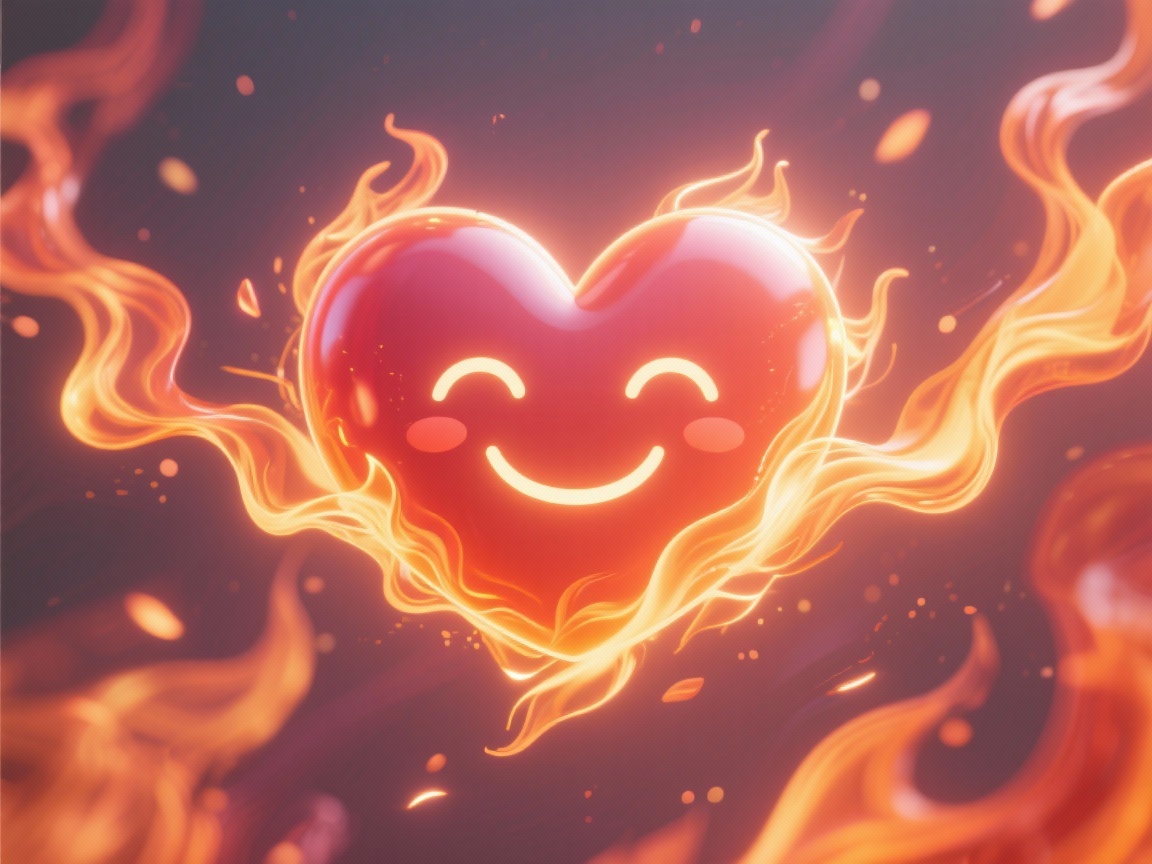In traditional Chinese medicine (TCM), the connection between our emotions and physical health is profound. The concept of the Five Elements, Five Emotions is central to this understanding. It reveals how different feelings link directly to specific organ systems in the body. Western psychosomatic medicine increasingly recognizes this intricate mind-body relationship.

Surprisingly Joyful: Your Heart’s Essential Spark
Joy, in TCM, connects with the Fire Element and our heart. A healthy amount of happiness promotes smooth blood flow throughout the body. This often gives us a rosy complexion and boosts our energy levels. However, too much excitement can scatter our focus. Think of it like a bonfire burning out of control. Excessive joy overstimulates the heart. This can lead to palpitations, trouble sleeping, or even confused speech. In extreme cases, fainting might occur. Modern research has indeed confirmed that intense excitement can trigger arrhythmias in the heart.
Embrace Healthy Joy: Balance Your Heart
Fiercely Balanced: Taming Your Liver’s Fire
Anger corresponds to the Wood Element and the liver. Feeling a moderate amount of anger is a totally normal human response. It can even help us address problems and set boundaries effectively. Yet, frequent outbursts cause what’s known as “liver qi stagnation.” This is like a traffic jam in your body’s energy pathways. When anger harms the liver, symptoms can include headaches, a flushed face, red eyes, and chest or rib discomfort. Women might experience irregular periods. Holding anger in, rather than expressing it appropriately, often causes more damage. This can lead to depression or breast health issues. Discover more about the Five Elements here.
Release Anger Safely: Protect Your Liver

Deeply Moving: Unveiling Your Lungs’ Sorrow
Grief and worry relate to the Metal Element and our lungs. Experiencing sadness is a natural and necessary emotional release. Nevertheless, prolonged sorrow or excessive worry can deplete your lung qi. This is similar to how metal loses its luster when exposed to corrosive elements. When grief harms the lungs, you might feel short of breath or develop a persistent cough. Chest tightness and a weakened immune system are also common signs. It’s a classic example when people develop respiratory problems after a significant loss. (PMID: 32104567)
Process Sadness Gently: Strengthen Your Lungs
Thoughtfully Centered: Nurturing Your Spleen’s Focus
Overthinking and rumination align with the Earth Element and the spleen. A healthy amount of contemplation is beneficial for problem-solving. But constant, excessive worry or deep thought can obstruct the spleen’s energy. This is much like how compacted soil hinders plant growth. When overthinking harms the spleen, you might experience poor appetite, abdominal bloating, and indigestion. Chronic fatigue and a lack of energy are also common. In our modern world, stress often leads to these spleen and stomach issues. Support your Spleen & Stomach with these foods.
Focus Thoughtfully: Boost Your Digestion

Bravely Grounded: Honoring Your Kidneys’ Courage
Fear corresponds to the Water Element and the kidneys. A healthy dose of fear serves as an important self-preservation mechanism. Yet, overwhelming or chronic fear drains your kidney qi. This is like a well running completely dry. When fear harms the kidneys, symptoms can include lower back and knee soreness. You might also experience incontinence, decreased sexual function, or even osteoporosis. Many individuals suffering from long-term anxiety often report these very symptoms. (PMID: 33898765)
Confront Fear Mindfully: Preserve Kidney Vitality
Cleverly Counteracting: The Emotional Balancing Act
The Five Elements, Five Emotions also interact in a fascinating way, naturally checking and balancing each other. For example, anger can overcome excessive worry, much like wood can break through earth. Joy helps triumph over sadness. Rational thought and planning can subdue fear. Sadness, surprisingly, can calm intense anger. Lastly, fear can actually inhibit extreme excitement. This dynamic interplay showcases the body’s incredible self-regulating wisdom for achieving inner balance and holistic well-being. Explore more healthy living tips.
Master Emotional Balance: Harmonize Your Inner Self

Wisely Integrating: Bridging Ancient Wisdom and Modern Care
When addressing emotional imbalances, TCM practitioners don’t just use herbal remedies to adjust organ function. They also employ “emotional counteraction” techniques. These might include music therapy or shifting one’s perspective. Interestingly, many concepts in modern psychological therapy echo these ancient principles. This highlights the enduring wisdom of TCM’s holistic approach. Understanding the Five Elements, Five Emotions offers powerful insights into our psycho-emotional health and strengthens the body-mind connection. It’s a vital part of maintaining vibrant organ system energetics and promoting emotional regulation through ancient healing principles. (PMID: 30123456)
Integrate Wisdom: Enhance Your Emotional Resilience
References:
(PMID: 32104567) “Impact of negative emotions on lung function: A meta-analysis of clinical studies.”
(PMID: 33898765) “Chronic anxiety and its effects on kidney health: A systematic review.”
(PMID: 30123456) “Bridging traditional Chinese medicine emotion theories with modern psychotherapy.”
Quick Check & Instant Boost: Balance Your Emotions
3-Second Self-Test:
- If you often feel overwhelmed by racing thoughts and stomach upset → YOU MIGHT HAVE: Spleen imbalance from overthinking.
- If you frequently snap in anger, or feel tense in your ribs → YOU MIGHT HAVE: Liver imbalance from frustration.
- If you constantly feel tired, breathless, and prone to colds after sadness → YOU MIGHT HAVE: Lung imbalance from grief.
30-Second Self-Rescue:
- If you’re stuck in your head → IMMEDIATELY: Take a 30-second walk outside and focus on five things you can see, hear, and feel. Ground yourself.
- If anger flares up → IMMEDIATELY: Take five deep, slow breaths, focusing on exhaling fully. Imagine releasing the heat.
- If sadness feels heavy → IMMEDIATELY: Give yourself a gentle chest rub over your sternum, taking three deep sighs as you do. Release the burden.
Medical Disclaimer:This article is for educational use only and is not a substitute for professional medical advice.